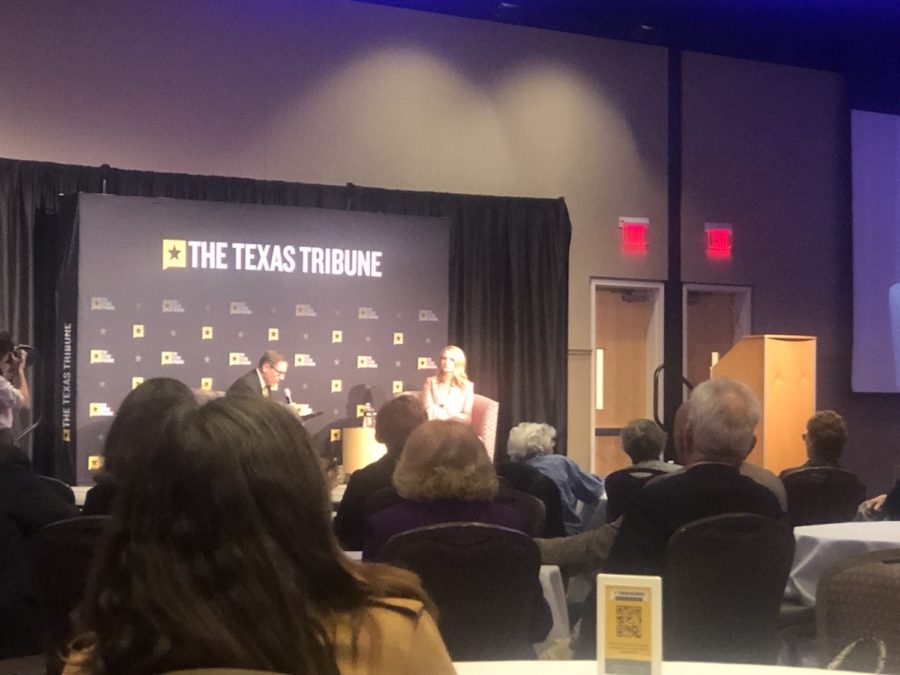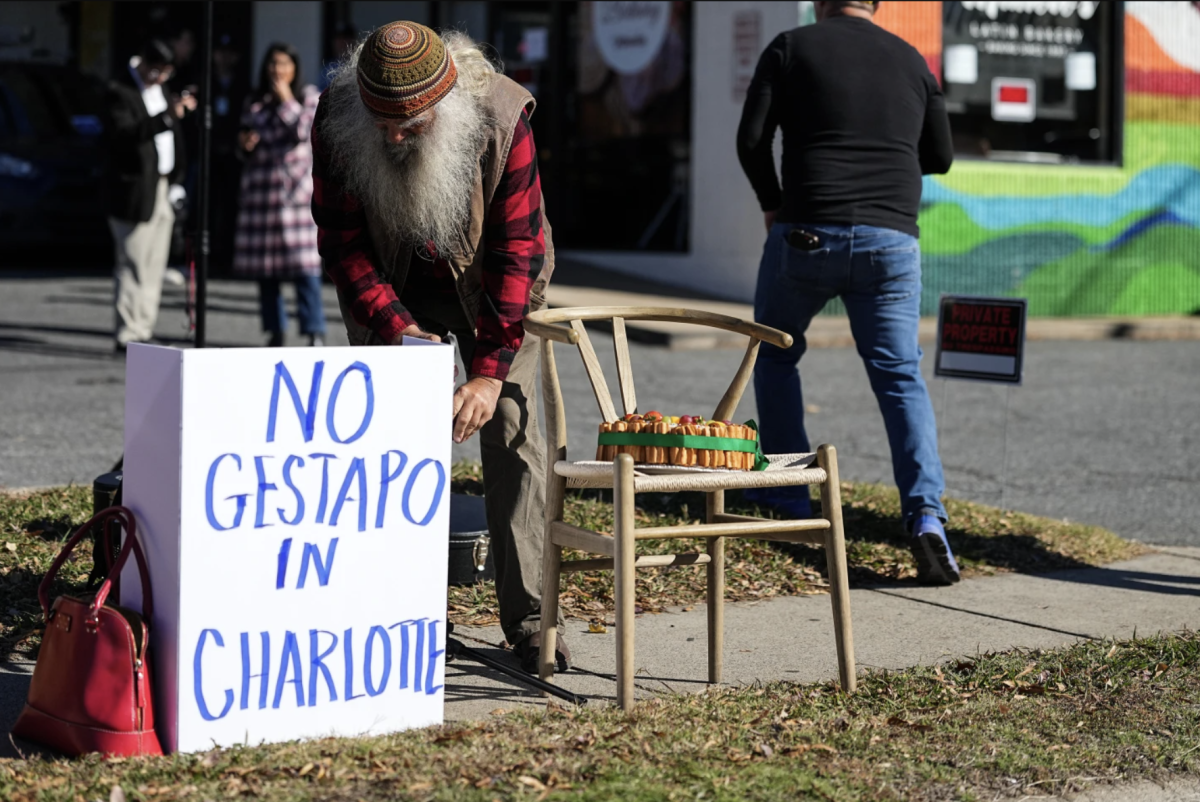Fort Worth Mayor Mattie Parker discussed her first year in office and her outlook on the city’s achievements and struggles in an on-campus interview with Texas Tribune CEO Evan Smith Wednesday.
The conversation covered a variety of topics, including COVID-19, crime, education and more.
Before her mayoral election last year, Parker served as chief of staff to her predecessor Betsy Price. She saw firsthand how the city handled the response to the COVID-19 pandemic. She said she believes city officials managed the crisis to the best of their ability, and she “won’t play ‘Monday morning quarterback’” when discussing their efforts.
Parker lauded Fort Worth, especially in the crisis response to aid local businesses. “When we received CARES Act [funds], they took $30 million and created small business grants across the city,” Parker said. “Rather than create a new program, they turned around and gave checks to people that needed them as fast as possible to try and keep businesses afloat.”
Smith questioned her regarding the rising homicide rate, which increased 30% in 2019. In Fort Worth, there were 118 homicides, the city’s highest recorded number in 27 years, Smith said.
“We do [have a problem with homicides],” Parker said. “In Fort Worth, our reality is not dissimilar from other American cities. I’m also leading an effort with the mayor of New York, through the U.S. Conference of Mayors, to co-chair a committee to focus on violent crime across the country. It needs to be a bipartisan conversation.”
They also discussed improving public education and how to ensure students’ success. Parker expressed her frustration with the statewide conversations surrounding education, arguing that many of the most hotly-debated issues are distracting us from the bigger, more pressing problems.
“I know one thing we’re not talking about [is] student outcomes and how kids are doing,” Parker said. “We’re talking about everything else, and we’ve stopped talking about how our kids are performing in schools. I want our focus to be on making sure students are reading at grade level, making sure they can do algebra in the eighth grade the way they need to, and importantly, what is their path out of high school to make sure they’re successful in the economy.”
During the Q&A session following the formal interview, one audience member asked Parker about her position regarding Deferred Action for Childhood Arrivals (DACA). This executive order, issued by President Barack Obama in 2012, gave immigrant youth brought to the country children relief from deportation.
It has endured a turbulent path in the courts, and despite the Biden administration’s efforts to revitalize it, a court in Texas ruled last year that it was an illegal overreach of power by Obama. Still, the order did not enforce immediate action, and the judge said that the federal government should not take any action on immigration that it “would not otherwise take.”
The policy would likely need congressional approval in order to be considered settled law.
When Smith pressed Parker for her own views on DACA, creating a hypothetical scenario where he pretended to be Rep. Kay Granger and asking Parker to give advice on how to vote on the policy, she voiced her support.
“Yes, absolutely [they] should be legal residents,” Parker said.
While in office, Parker said she is committed to remaining nonpartisan, though she acknowledges her background and work in Republican politics and describes her personal views as being aligned with that party. Still, Parker expressed some opinions which diverge from her party’s official platform.
“I support Medicaid expansion 100%, and I realize that it’s an incredibly difficult policy area and that may be unpopular with some people of the party of which I used to identify with,” Parker said. “But I can tell you right now […] in Fort Worth, you have families without health insurance simply because we have not expanded Medicaid. And there’s not been an alternative presented in the state of Texas to replace Medicaid expansion, so I simply ask the question ‘What are we going to do about it?’”
Smith — who has also interviewed politicians ranging from President Obama, Sen. Ted Cruz, Rep. Beto O’Rourke and Gov. Rick Perry — said he was excited to return to TCU because “it’s a public square for Fort Worth” that brings the community together to discuss complex subjects.
“What government does do or does not do, what government does for you and to you — at the federal, state and local level — has never been more important,” Smith said. “It’s important in normal times, and it’s especially important in abnormal times. And these have been abnormal times.”
See the entire formal interview here.







